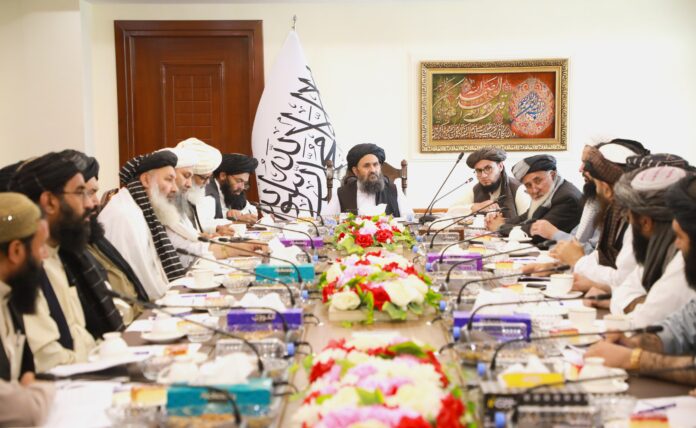KABUL: The meeting of the Economic Commission of the Islamic Emirate of Afghanistan was held with the Deputy Prime Minister for Economic Affairs, Mullah Abdul Ghani Beradar Akhund, on the chair, to approve self-sufficiency policies and plans in key sectors.
The office of the deputy PM for economic affairs said in a statement on Wednesday that a proposal which had been presented by the Ministry of Agriculture, Irrigation, and Livestock for the construction of six agricultural, demonstration, and promotional complexes in the provinces of Herat, Helmand, Nangarhar, and Balkh has been approved in the meeting.
According to the statement, the complexes will be built on 4,479 acres of land and will provide farmers with quality services in modern and mechanized agriculture.
In the meeting, another proposal for the self-sufficiency policy for the poultry sector, which also had been presented by the Ministry of Agriculture, Irrigation, and Livestock, has been approved after a thorough assessment by the Economic Commission, said the statement.
“Afghanistan is currently nearing self-sufficiency in poultry meat and feed production. With the implementation of this policy, the country is expected to achieve self-sufficiency in egg production as well,” said the statement, “Currently, around 14,000 poultry farms are active nationwide, directly employing 100,000 people and indirectly engaging 300,000 others.”
Furthermore, a self-sufficiency policy for the dairy sector was submitted by the Ministry for discussion and was approved after detailed evaluation and taking into account the Commission’s recommendations, the statement said.
The implementation of this policy will lead to the domestic production and processing of the country’s required dairy products and will contribute to the development of the livestock sector.
The statement further said that the Ministry also presented a self-sufficiency plan for the production of edible vegetable oils, which was approved following comprehensive discussions and consideration of the Commission’s recommendations.
According to the plan, approximately 289,000 hectares of land in various provinces will be cultivated with cotton, soybeans, sesame, mustard, flaxseed, and sunflower. Implementation of the first phase of this plan is expected to meet 30% of the country’s demand for edible vegetable oils, the statement further said.
At the end of the meeting, reports on several follow-up issues were also presented and approved by the Economic Commission and sent to the Office of the Supreme Leader of the Islamic Emirate for final approval, the statement concluded.



